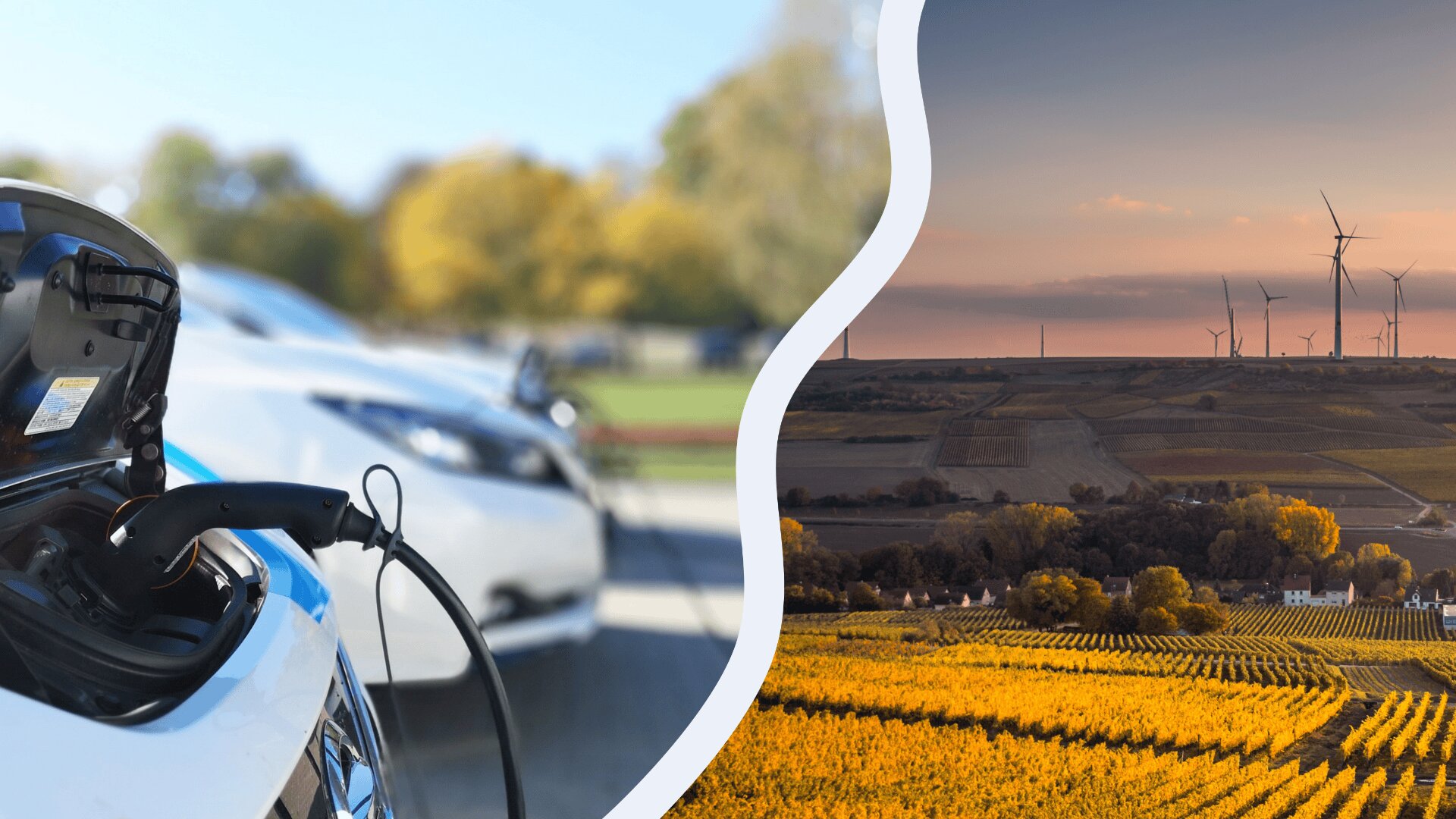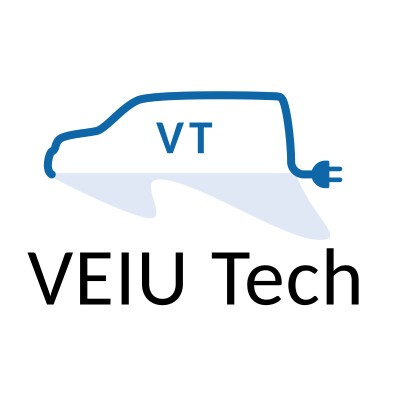Unlocking the Potential of EV Fleets
VEIU Tech’s charge management solution doubles the value of EVs for fleet operators by enabling them to serve as dynamic energy assets that can provide essential power flexibility to the energy markets and grid balancing services.
The transition from fossil fuels to renewable energy sources is revolutionizing the electricity landscape, leading to a significant increase in electricity consumption and renewable energy production. This shift, while beneficial, presents a unique challenge: the growing mismatch between increased consumption and decentralized production, particularly in the distribution grid area. The result is a higher load on the grid infrastructure, which was not designed to accommodate this new production and consumption dynamic. For grids, this means potential overloads, increased costs, and the urgent need for infrastructure upgrades. For fleet operators, the push towards electrification introduces complexities in managing operational costs and optimizing fleet usage, especially when leveraging EVs as energy assets.
The Hurdles on the Path of Fleet Electrification
Electric fleet operators face significant challenges as they navigate the adoption of electric vehicles (EVs). Key pain points include:
-
High Operational Costs: Whether fleet managers have purchased or leased their EVs, the financial investment is substantial. Efficiently managing these fleets to maximize return on investment (ROI) is critical. High operational costs, including maintenance, charging, and operational logistics, can erode potential savings and diminish the economic viability of fleet electrification.
-
Underutilized Assets: EVs have the potential to be more than just transport equipment; they can serve as valuable energy assets. However, many fleet operators struggle to leverage this capability, missing out on additional revenue streams or cost savings.
- Infrastructure Strain: Managing charging infrastructure effectively is crucial. High power demand from simultaneous charging can lead to peak loads, risking grid overloads and infrastructure strain. Advanced load management solutions are necessary to mitigate these risks.
-
Complexity in Managing Flexibility: Synchronizing EV operations with grid flexibility needs is complex and requires sophisticated management systems to ensure that business operations are not disrupted.
The Challenges Posed by the Energy Transition for Grids
Grid operators are also facing substantial challenges in the evolving energy landscape:
-
Costly and Resource-Intensive Grid Expansion: Expanding the grid to handle increased loads is an expensive endeavor, requiring significant financial investment and raw materials.
-
Labor Constraints: Grid expansion demands specialized labor, which is not readily scalable, limiting the speed at which necessary upgrades can be made.
-
Shortage of Flexibility Assets: There is a critical shortage of accessible and affordable flexibility assets to manage the grid load efficiently. Traditional assets like pumped hydro are limited and do not fully address the needs of grid operators. Stationary batteries, while an option, are resource-intensive to produce and deploy, requiring significant amounts of raw materials and manufacturing capacity. This makes them a less sustainable choice compared to leveraging the existing batteries already present in EVs, which can provide the necessary flexibility without additional resource consumption.
Our Interconnected Solution
The challenges faced by both electric fleet operators and grid operators are interconnected. Grid operators need flexible assets to manage load and avoid costly expansions, while fleet operators need to maximze their investments in EVs. The solution lies in leveraging EV fleets as flexibility assets for the grid. VEIU Tech's charge management solution is a comprehensive Software-as-a-Service (SaaS) platform that bridges fleet operations and grid flexibility needs, effectively converting electric fleet into flexible energy assets. Here's how our solution stands out:
-
Advanced Data Integration: Our platform integrates fleet operational and vehicle data to fully leverage the effective flexibility of EVs without interfering with business operations. This ensures that the maximum available flexibility is utilized efficiently.
-
Versatile Flexibility Services: VEIU Tech’s system is adaptable to various flexibility needs, from peak shaving and ancillary services to grid stabilization. This versatility ensures that the value of flexibility assets is maximized in different locations, settings, and times.
-
Innovative Charge Control System: Our in-house, independent charge control system allows for faster integration with diverse fleets, making it suitable for any EV setup. This system eliminates dependency on third-party interfaces, offering a seamless and interoperable solution.
Benefits for Electric Fleet Operators
By using VEIU Tech’s solution, fleet operators can turn their operational transport equipment into profitable flexible assets:
-
Reduce Operational Expenses: Efficient management of EV charging can significantly lower energy costs and optimize the use of fleet resources. By maximizing the use of photovoltaic (PV) systems for charging, fleet operators can harness their own renewable energy, reducing reliance on expensive grid electricity. Smart charging strategies can reduce peak load demand, lowering demand charges and avoiding costly peak energy rates. Leveraging dynamic tariffs, fleet operators can schedule charging during off-peak times when electricity prices are lower, further reducing operational expenses.
-
Generate Additional Revenue: By participating in grid flexibility programs, fleet operators can create new revenue streams, enhancing the ROI of their investments. Examples of these programs include providing ancillary services, such as frequency regulation and voltage stabilization, as well as balance group balancing. These services enable fleet operators to monetize their EVs' ability to support grid stability and reliability.
-
Simplify Fleet Management: Our platform provides a unified solution that simplifies the management of fleet operations and grid interactions, reducing the complexity and administrative burden on fleet managers.
Benefits for Grid Operators
Grid operators gain access to a scalable and flexible resource to manage grid load more effectively, reducing the need for costly expansions and specialized labor. The integration of EV fleets as flexibility assets offers several key advantages:
-
Enhanced Grid Stability for Distribution System Operators (DSOs): DSOs can use EV fleets to stabilize voltage levels and contain excessive loads due to system electrification, reducing the need for extensive grid expansions and the installation of resource-intensive stationary batteries, thereby aligning with sustainability goals.
-
Valuable Asset for Balancing Poolers: Balancing poolers can incorporate EV fleets into their asset pools, offering them to Transmission System Operators (TSOs) for the provision of ancillary services such as frequency regulation, improving grid stability and reliability.
-
Effective Tool for Balance Group Managers: Balance group managers can leverage EV fleets to respond to energy imbalances, minimizing balancing fees and ensuring more accurate and efficient load management.
-
Future-Proof Flexibility Services: The growing demand for flexibility services will merge into broader markets, allowing EV fleets to provide diverse flexibility products to DSOs, TSOs, and other participants, enhancing the overall efficiency and sustainability of the energy system.
In a Nutshell
VEIU Tech is at the forefront of the energy transition, providing a cutting-edge solution that addresses the critical pain points of both grid operators and fleet managers. Our innovative platform not only enhances the operational efficiency of EV fleets but also plays a crucial role in stabilizing and optimizing the grid. By leveraging the inherent flexibility of EV fleets, VEIU Tech offers a cost-effective, scalable, and sustainable solution for the future of energy management.


